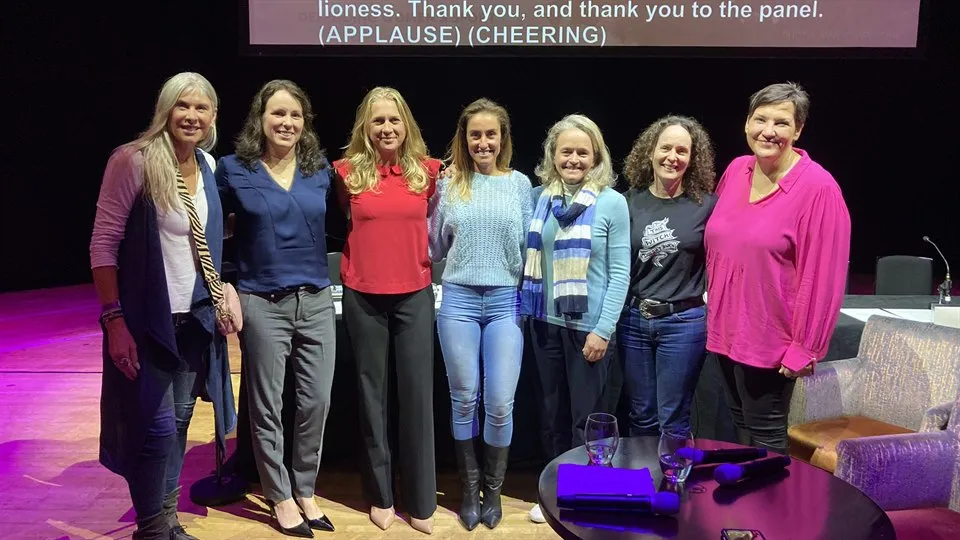Panel debate on sexism and inequality in sport
On Sunday 23rd October Kerry McGawley was part of a panel at the FiLiA Women’s Rights Conference, the largest annual grassroots feminist conference in Europe, talking about “Defending Women’s Sport”.
Here are Kerry’s own reflections.
The session was hosted by Fair Play For Women, a UK-based consultancy group that works to protect the rights of women and girls. The panel was united by a common passion to preserve fair, safe, and inclusive conditions for girls and women (i.e., biological females) participating and competing in sport.
A panel with vast experience
On the panel with me were two former Olympic athletes, swimmer Sharron Davies MBE and marathon runner Mara Yamauchi, former international Welsh rugby player and current Member of Parliament Tonia Antoniazzi, manager of the women’s professional cycling Team Jadan-Vive le Velo Victoria Hood, current elite U.S. swimmer Riley Gaines and founder of the US-based advocacy group Independent Council on Women’s Sports (ICONS) Kim Jones.
The purpose of the session was to raise awareness of issues related to sexism and inequality in sport, where women are still under-represented and receive far less recognition and reward for their pursuits compared to their male counterparts. This is not only the case for female athletes but also for women working in sport, such as coaches, leaders, educators, and researchers.
Transwomen in sports were discussed
A further aim of the session was to raise awareness about the current situation with transwomen (i.e., biological males) participating in female sports categories. Transwomen have typically (although not always) undergone some degree of post-pubertal hormonal treatment to suppress testosterone, yet they retain physical and physiological advantages over women that are relevant in sports.
These sex-induced advantages create an unlevel playing field and compromise women’s safety, due to the significant differences in size, strength and power between biological males and females. We therefore advocate that sports categories continue to be based on biological sex rather than gender identification.

